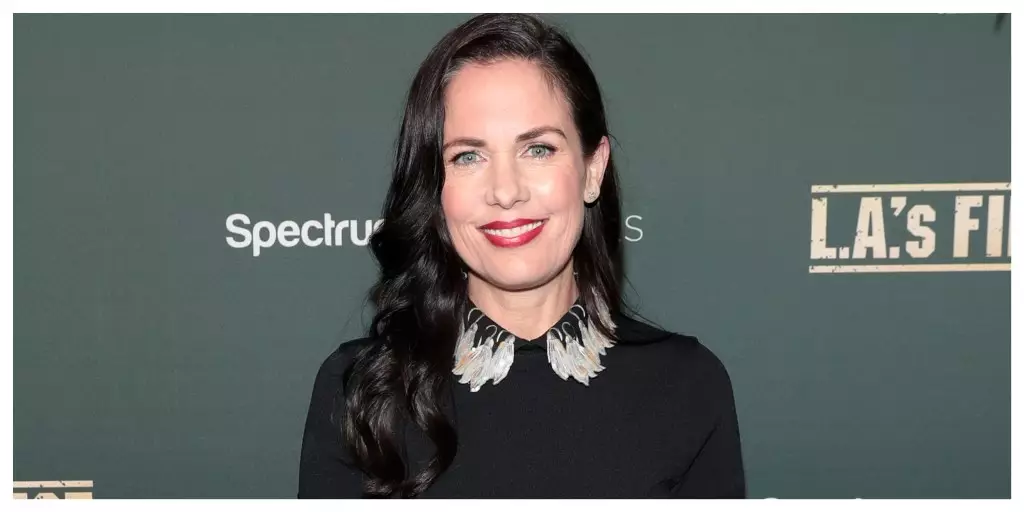In an illuminating keynote address at the MIA conference held in Rome, Katherine Pope, president of Sony Pictures Television Studios, shared her insights on the evolving landscape of television production. Drawing from her extensive experience, including a decade at NBCUniversal, Pope emphasized the significance of looking back at traditional methods to inform future practices. Historically, the U.S. broadcast system was steadfast in adhering to strict timelines and budgets, a discipline that has seemingly waned in recent years. With the fast-paced nature of the streaming era, there is a growing discourse around the necessity of reigniting some of that lost rigor in production.
Pope’s assertion that “creative production budgetary friction is a good thing” encapsulates her belief that challenges and constraints often lead to innovative solutions. The unpredictability inherent in the creative process can foster unexpected ideas about locations, scheduling, and overall production efficiency. By acknowledging these ‘frictions’, producers can leverage creativity to push the boundaries of storytelling while maintaining a healthy budget and timeline.
Sony’s Unique Position in a Tumultuous Industry
With the industry facing unprecedented challenges—from market contractions to the chaotic “streaming wars”—Pope highlighted Sony’s independence as a crucial asset. In a sea of business model experiments and strategic pivots, Sony has remained steadfastly focused on its core mission: delivering compelling entertainment. This clarity of purpose, according to Pope, allows the studio to cut through the noise that often overwhelms creators.
What sets Sony apart is its vast intellectual property, encompassing divisions like PlayStation, Sony Music, and Crunchyroll, which can serve as fertile ground for content generation. This extensive IP repository not only enhances the storytelling potential of Sony’s projects but also enables the studio to explore rich, multi-faceted narratives that can resonate with diverse audiences.
When spotlighting the achievements of the studio, Pope pointed to the phenomenal success of “The Boys”, a series that has grown in viewership and acclaim with each season. She described the upcoming prequel spinoff, “Vought Rising”, as an innovative blend of thematic elements akin to “Mad Men” and “The Boys”, suggesting a fresh take on familiar genres. The concept of continuously trending viewership is something Pope is deeply passionate about.
With statistics revealing that Season 4 garnered a staggering 55 million views within its first month, Pope refers to such achievements as the “holy grail” of television—a testament to both creative storytelling and audience engagement. As expectations build for the forthcoming season, she anticipates that it will be a remarkable viewing experience, further solidifying the show’s legacy.
However, amidst successes, Pope expressed frustration regarding the industry’s increasing reliance on data-driven decision-making, particularly in the timing of series renewals. Such a fragmented approach can detrimentally affect fan engagement, leading to extended waits between seasons that disrupt narrative continuity. Pope articulated a straightforward viewpoint: “The experience of watching eight episodes and then two years later waiting for the next eight is not a good fan experience.”
Her candid critique of this disconnect highlights the industry’s urgent need for more agile processes, urging creators to prioritize viewers’ experiences. She advocates for a more efficient approach that minimizes gaps between seasons, suggesting that this will retain and enhance audience loyalty in a landscape overflowing with entertainment options.
As Katherine Pope navigates the complexities of the television industry, her insights provide a roadmap for producers looking to thrive amidst change. By marrying old-school disciplines of production with the creative freedoms of contemporary storytelling, there lies the potential for the emergence of a new television renaissance.
At its core, Pope’s perspective reaffirms the belief that great entertainment can thrive even in chaotic environments, provided that producers remain focused on delivering rich, engaging narratives for audiences. In a world where distractions abound, the commitment to prioritizing storytelling over the tumult of the streaming landscape may be exactly what’s needed to regain the trust and enthusiasm of viewers.

